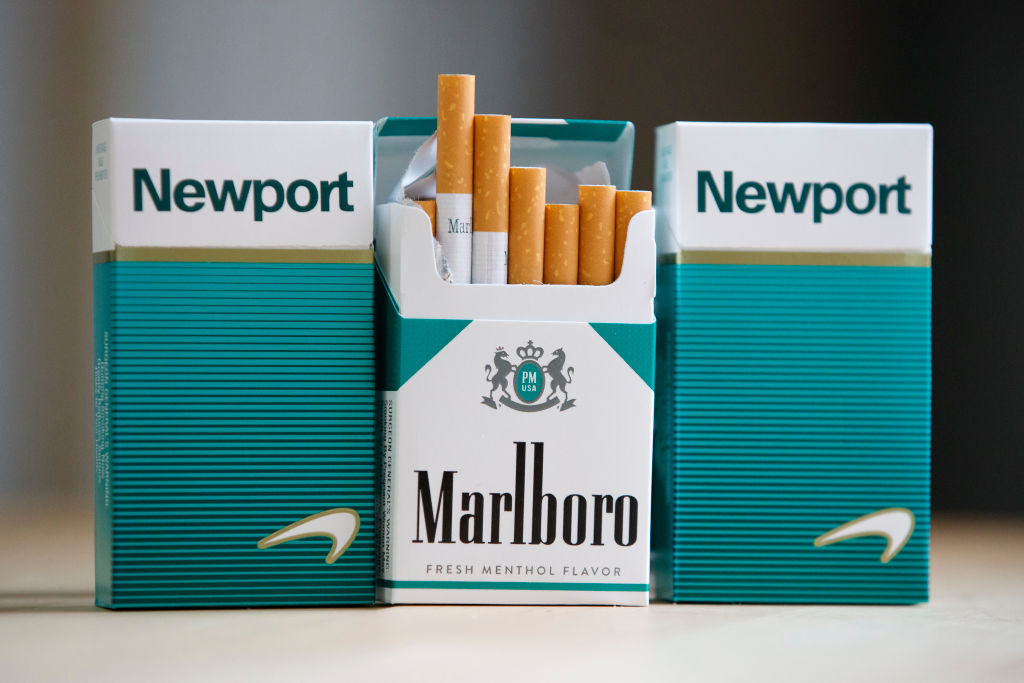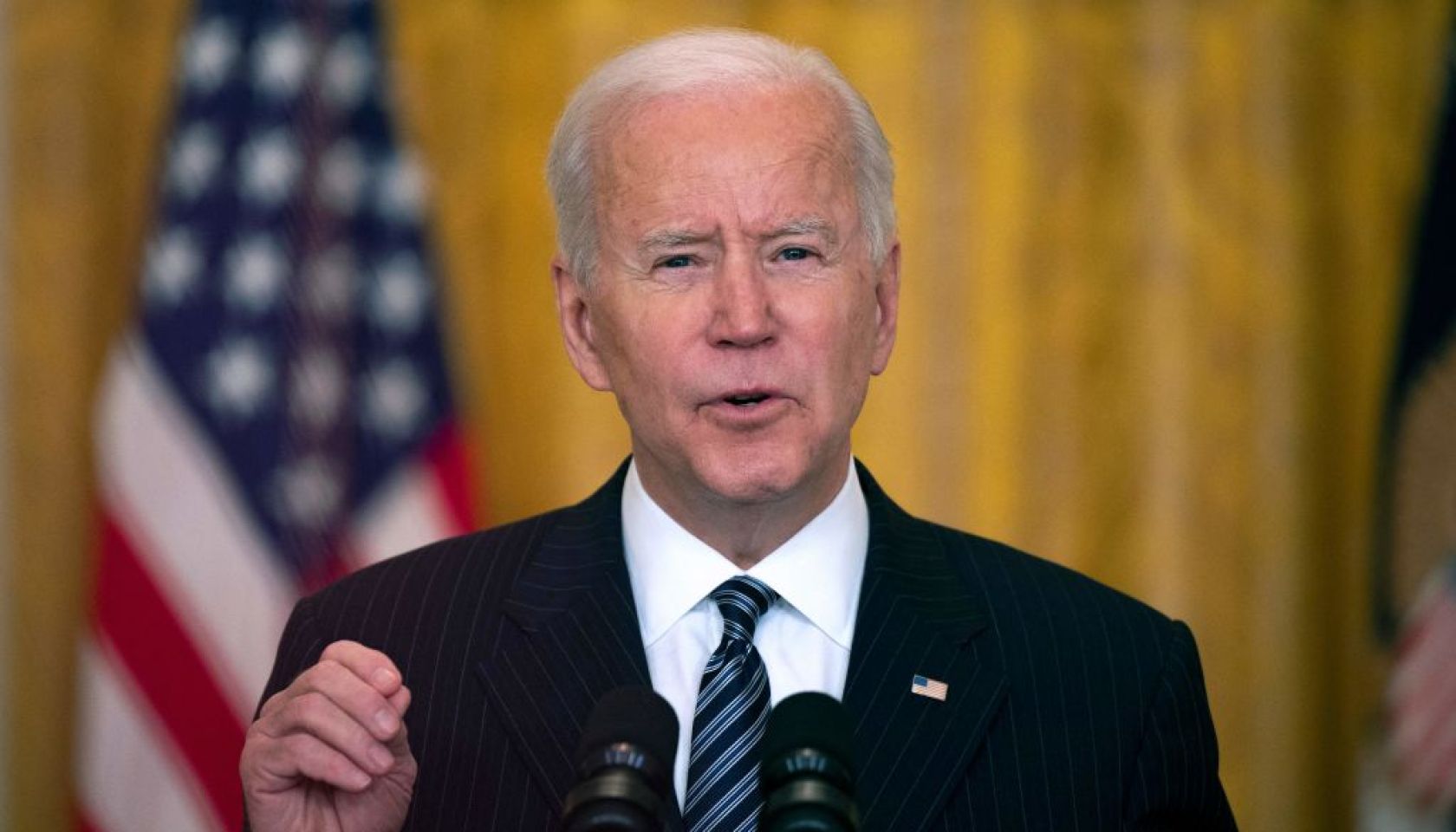Menthol Cigarette Ban Racist? Most Black Smokers Prefer Them
All Cigarettes Matter: Why Ban Just Menthols? Statistics Show 77% Of Black Smokers Prefer Them

Source: Drew Angerer / Getty
UPDATED 4:10 P.M. ET, April 28, 2022
Originally published: May 4, 2021
The federal government’s movement to ban menthol cigarettes is gaining momentum with a new proposed rule to deter their consumption along with other flavored tobacco products that statistics show are preferred by Black smokers.
Without mentioning the topic of race, the U.S. Food and Drug Administration (FDA) on Thursday announced the new proposal as a means to prevent youth consumption of such products, in particular.
“The proposed rules would help prevent children from becoming the next generation of smokers and help adult smokers quit,” Health and Human Services Secretary Xavier Becerra said in a statement. “Additionally, the proposed rules represent an important step to advance health equity by significantly reducing tobacco-related health disparities.”
The FDA is part of the Department of Health and Human Services.
The FDA’s end game is to “reduce the appeal of cigarettes, particularly to youth and young adults,” according to a press release announcing the proposals. Officials expect this approach to “improve the health and reduce the mortality risk” associated with smoking menthols and flavored cigars.
The FDA will field comments from the public about its proposed rule starting on May 4, one year after the Biden Administration announced its intentions to ban menthol cigarettes and flavored tobacco products. There is no timetable for when the actual rule will be officially implemented and FDA officials said they would move as expeditiously as possible.
The NAACP said the menthol ban is long overdue.
“For decades, the tobacco industry has been targeting African Americans and have contributed to the skyrocketing rates of heart disease, stroke and cancer across our community,” the NAACP said in a statement on Thursday. “The tobacco industry is on a narrow quest for profit, and they have been killing us along the way. The NAACP has been calling for a ban on menthol cigarettes and flavored e-cigarettes for years now, and we applaud the FDA’s latest plan to do just that. It’s about time we prioritize the health and well-being of African Americans.”
The proposed rule going into effect will not stop the sale of so-called regular cigarettes that are not menthol-flavored and can still cause adverse health reactions to their presumably non-Black smokers, making the menthol ban even more curious to those who oppose it.
According to statistics from the Centers for Disease Control and Prevention (CDC), nearly 77% of Black smokers prefer menthol cigarettes. That’s because, the CDC says, “the tobacco industry has aggressively marketed menthol products to young people and African Americans, especially in urban communities.”
Further, Black people die from diseases related to tobacco use at a higher rate than whites even though Blacks smoke fewer cigarettes and start smoking at an older age than white people do, according to the CDC.
Another argument in favor of the ban is that menthol cigarettes are more addictive than regular ones, in part because the menthol flavor makes “smoke inhalation easier to tolerate and therefore promote nicotine addiction and smoking-related illness,” scientists at Yale concluded in a 2012 study. That research also determined that menthol cigarettes posed the worst risk to children, who not only find them easier to smoke because of the flavor but are also more frequently exposed to them at a younger age.
One study even found that menthol cigarettes were marketed to African American youth in a “predatory” manner through ads and lower prices near many California high schools. Another study released in the American Journal of Public Health showed that banning menthol cigarettes could save as much as 600,000 premature deaths by the year 2050.
Thus, health experts at Washington University in St. Louis concluded that the menthol ban would benefit young Black people the most.
FDA officials have said they expect the menthol ban to lead to nearly 1 million smokers quitting altogether, including about 230,000 who are Black.
Becerra told the Grio last year that the decision was based on “science” and was a preventative measure to help Black people.
“We want to save lives in the Black community,” Becerra added.
To be sure, though, just because something is less addictive doesn’t mean it’s not addictive. In fact, a ban on menthol cigarettes will not eliminate the accessibility of regular cigarettes regardless of the smoker’s age. It also won’t eliminate the presence of menthol cigarettes, if past American prohibitions are any indications.
Critics of the ban have said there are several additional considerations that have not been adequately addressed.
The Washington Post’s Eugene Robinson wrote in a column last year that the menthol ban left a bad taste in his mouth in part because it would only create a black market; one that, by introducing a criminal element to smoking menthol cigarettes, would likely disproportionately affect the same Black people the ban is supposed to be helping.
But the FDA stresses on Thursday that there menthol cigarettes and flavored cigars would not be illegal by definition.
“Importantly, the FDA cannot and will not enforce against individual consumers for possession or use of menthol cigarettes or flavored cigars. If these proposed rules are finalized and implemented, FDA enforcement will only address manufacturers, distributors, wholesalers, importers and retailers who manufacture, distribute, or sell such products within the U.S. that are not in compliance with applicable requirements,” the FDA press release said. “These proposed regulations do not include a prohibition on individual consumer possession or use.”
It’s hard to forget that it was untaxed, loose menthol cigarettes — and racial profiling — that invited the NYPD‘s deadly violence against Eric Garner, who was accused of the nonviolent crime of selling them on the black market nearly eight years ago.
“Given all the ways that Americans of all races manage to obtain illicit mood-altering substances of all kinds, we should anticipate the emergence of an underground market in menthol cigarettes,” Robinson wrote at the time.
That same “underground market” thrived back when certain cities raised the price of a pack of cigarettes under the guise that doing so would help smokers quit.
According to statistics from the American Lung Association, Black people account for the second-highest percentage of smokers in the U.S., edging white people by just two-tenths of a percentage point (16.8% to 16.6%.). But more than three times as many Black people smoke menthol cigarettes compared to white smokers.
Conversely, though, young Black smokers represent the second-lowest group of cigarette smokers aged 12-17. Additionally, cigars, not cigarettes, were reported as being the most popular tobacco product among Black high school students.
In the end, banning menthol cigarettes could be tantamount to breathing new life into the failed war on drugs which has, not coincidentally, also disproportionately and adversely affected Black people.
“The issue of tobacco control is no different, Michelle Minton recently wrote for the Competitive Enterprise Institute, an economic think tank. Noting that “smoking is rare among affluent white populations,” Minton explained how “it should come as no surprise that as we move to decriminalize cannabis and while anti-tobacco groups advocate against criminal penalties for minors caught vaping (seen as popular among white teens), we are also increasingly moving toward policies that turn tobacco smokers (and especially majority-Black menthol smokers) into criminals or second-class citizens.”
Meanwhile, sales for menthol cigarettes have remained at a consistent level while sales of regular cigarettes have dipped slightly, according to the most recent statistics available. The cigarette business is nearly a trillion-dollar industry with an expected growth rate of 1.8% from now through 2028.
The move to ban menthol cigarettes didn’t come overnight. The NAACP is among dozens of organizations and officials who have been lobbying the FDA to ban them for years.
SEE ALSO:
Documentary Shames Tobacco Industry For Targeting The Black Community
One Of The Country’s Most Segregated Cities Has Easier Access To Tobacco Than Healthy Food


















